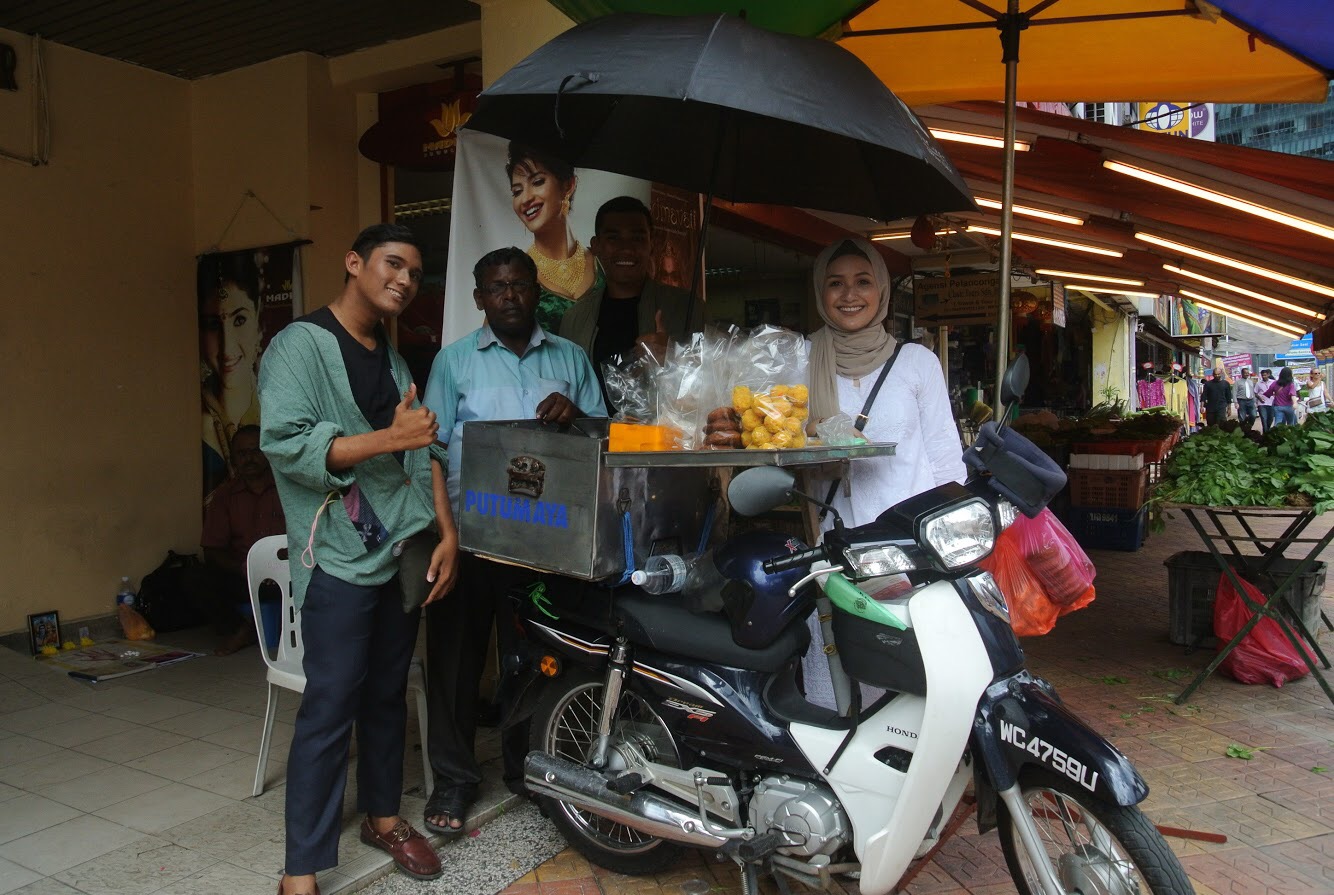By Puteri Balkish
Decked by the corridor next to Madras Jewellers, in Little India, Brickfields, you would catch a glimpse of a curly haired Tamil speaking man with the brightest smile seated next to his motorcycle. Tied to it is a metal box with blue capital letters spelling out œP-U-T-U-M-A-Y-A without the œM, showing signs of wear and tear over the years.
He greeted me with the biggest smile and asked, œYou called me that day right about school project? I was immediately moved by his warmth and kindness as he offered enthusiastically to explain about the Indian kuih he sells.
Donning a blue button-down shirt, he gave us a warm look and said, œI am Uncle Peter, and you call me Uncle Peter okay?
The assortment of kuih he sells includes putu mayam or iddiyappam, masala vadai, jalebi or jillebhi, potato filled curry puff, laddu, paal guva, adhirasam, nei urundai and rawa urundai. He arranges them in clear plastic bags on a metal tray attached to his motorcycle.
œMy business is already here for 15 years, he enthusiastically told us as he recalled and counted with his fingers.
He went on about his daily routine, and said, œEveryday I sleep at 12 at night and wake up at four in the morning and make all this, I finish making all of this kuih after six hours.
œI make all this by myself, he said while his hands point towards the kuih. Business starts at 12pm and ends at 9pm for Uncle Peter daily.
As a good Samaritan, if business is slow due to lack of customers or rainy weather, he would allocate them to the poor and homeless despite not earning much.
Here is an altruistic, kind-hearted man, who barely has sufficient means to live on, but still insists on caring and tending to the needs of others. I was touched by his magnanimity.
Uncle Peter mastered the art of making Indian delicacies by following his familys traditional recipe and is the second generation that sells them for a living.
He feels proud and dignified to be continuing the legacy, as there are not many Indian kuih sellers and makers anymore.
Despite the exhaustion and fatigue he endures daily, he has the widest grin smacked on his face when he entertains his customers, at any time of the day.
The drive he gets to sell everyday spurs from his resoluteness to discontinue the tradition of selling Indian delicacies in his own family.
œMy children, I want all of them to have a better life so I work hard for them, uttered Uncle Peter with a cracking voice.
He has customers of all races and religions, and many of them stopped by while I was around.
Before I fled the scene, he uttered a lucid, but soul-stirring sentence, as I could recall it, more like a word of advice.
œStudy hard and make your parents proud, they work very hard for you. Uncle will pray for you and for your success.
As I took the plastic bag of kuih he offered to me and fled the place, a surge of gratitude consumed me. For being able to have experienced that with such a big-hearted man, I now apprehend the beauty of such encounters.
The piece of advice still rummages through the multitude of my reveries as I ponder on the noteworthy moments in life. Palpably that was a moment that would not banish from my thoughts.***
